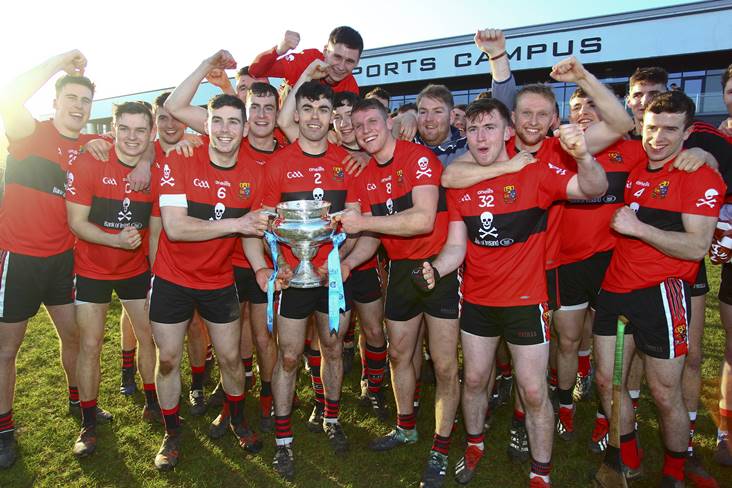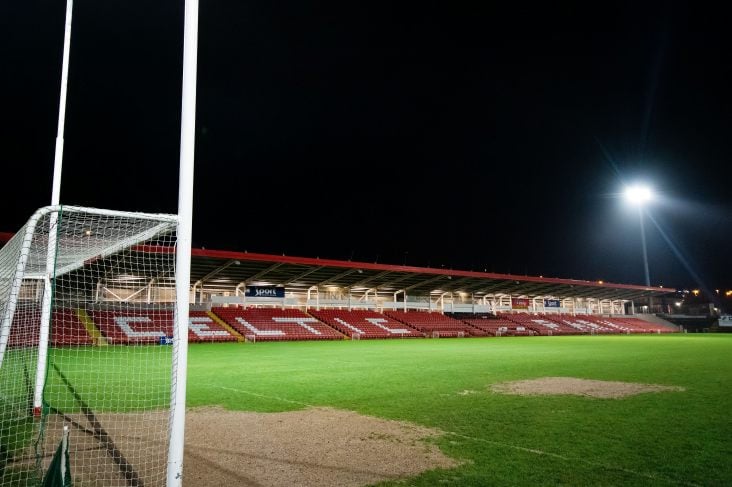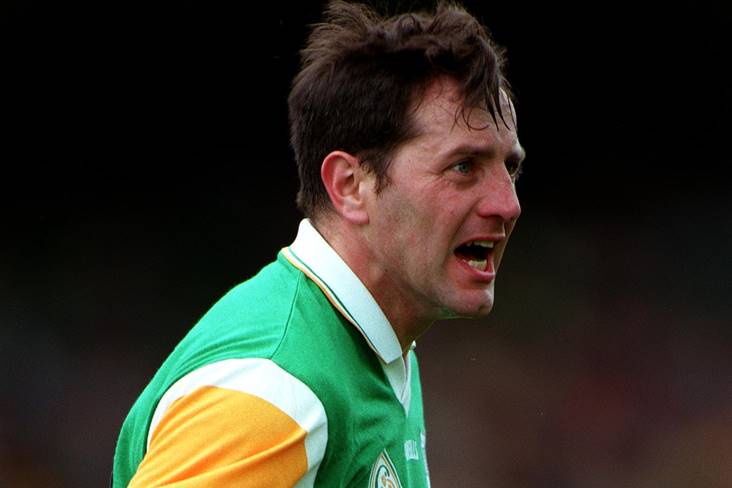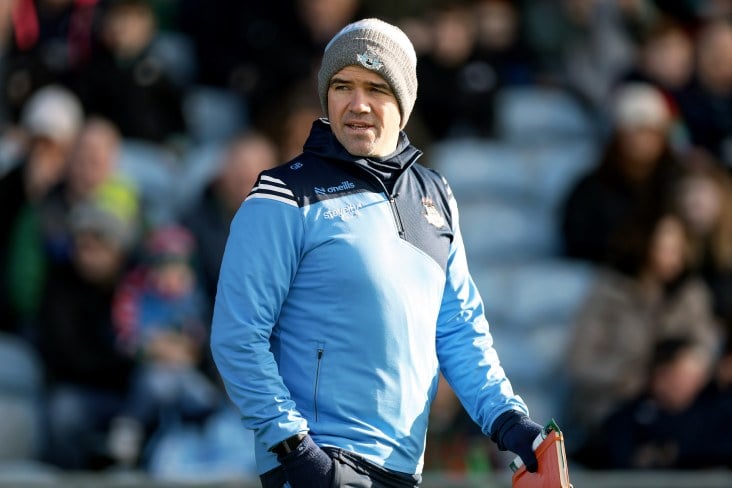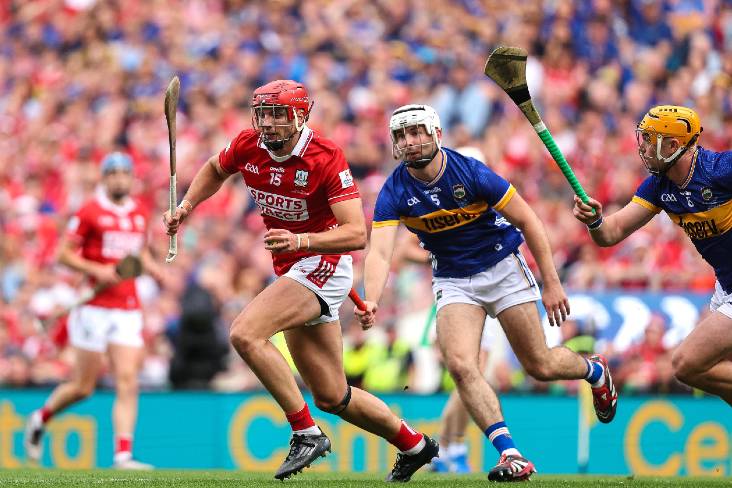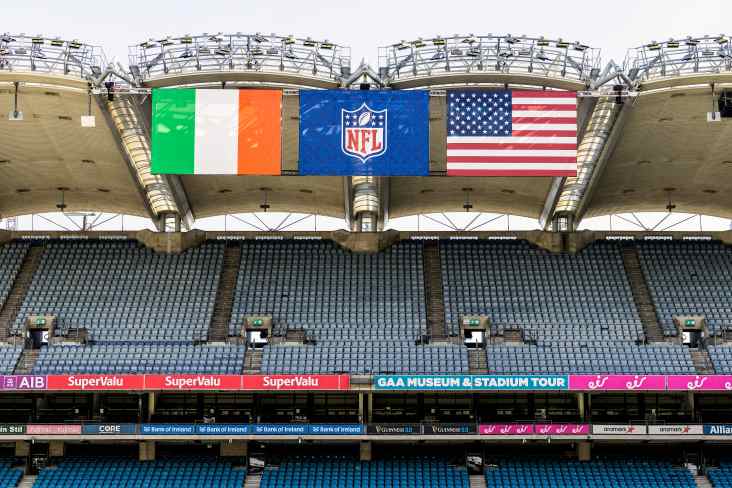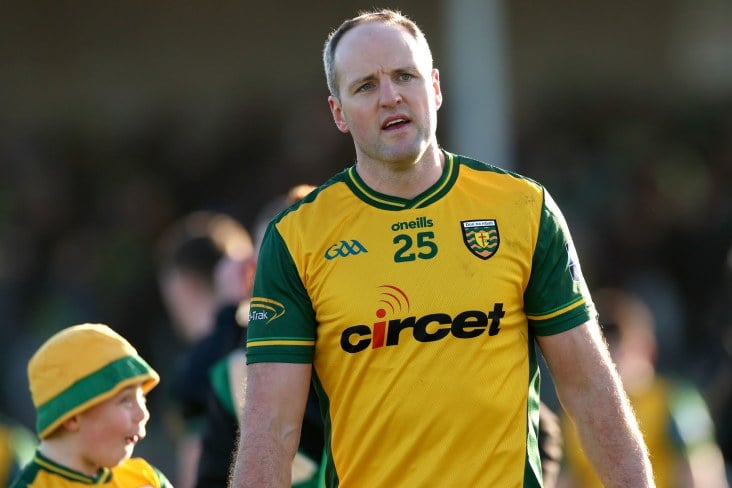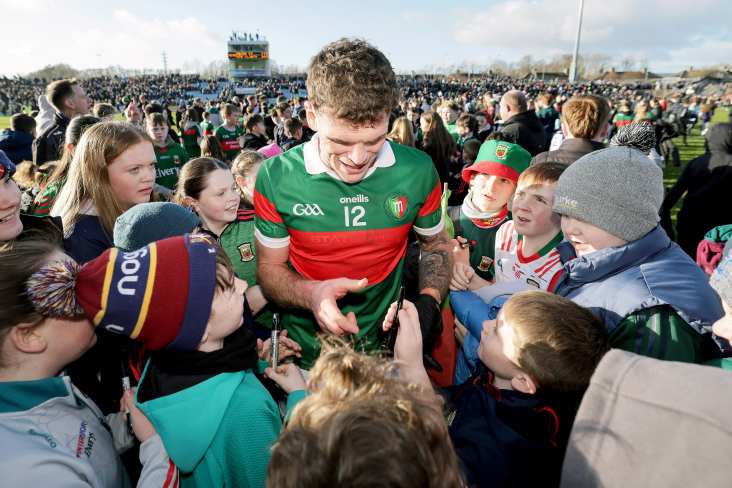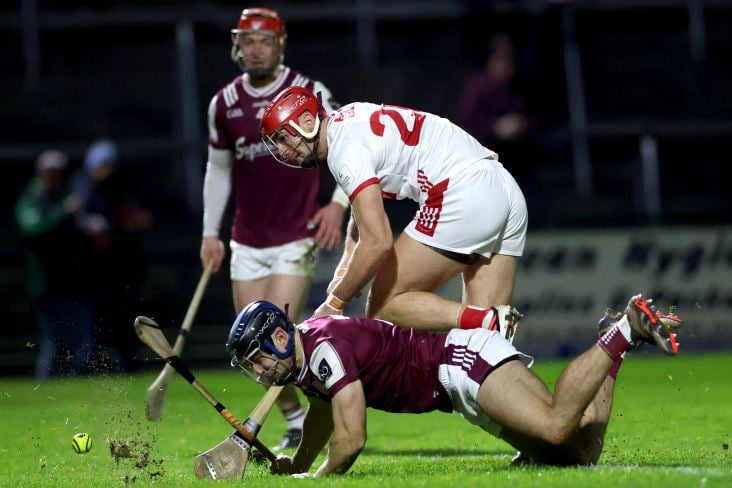Solid as a Rock
November 27, 2010With the promise of years of austerity, mass emigration once again taking hold and the spectre of the International Monetary Fund and the European Commission leaving sovereignty - that most precious of commodities for virtually everyone who made the GAA what it is today - under threat, good news is difficult to find among Ireland and its people as 2010 ticks to a close.
The story of Rockland GAA in New York, however, should be an uplifting one for every Irish man and woman. It offers further evidence, at a time when an unbreakable depression seems to have set in on these shores, of what people with a real and deep sense of their Irish identity can achieve when they set their minds at work in unity and spirit. We cling to the hope that our identity can survive the rigours of the most threatening crisis of our 90-year-old state. For that hope, we can look no further than Rockland.
It is here, an hour's drive north-west of Manhattan, that a group of Irish people, many of them forced to leave their homeland in the last darkness of the 1980s, have put together a club and a facility that stands as a beacon to Irish identity. If you have any doubts about the ability of Ireland and Irishness to survive the present flux, here is the proof to dispel them.
Irish Gaels on foreign soils have for years been content with shared fields and leaseholds from the city and county parks departments. The folk at Rockland GAA wanted more. They wanted a patch to call their own. Where others might see barriers, they only saw opportunity. And so it was that in 2010, Rockland's playing field at Old Orangeburg Road was officially opened.
Cormach Murrihy, born and bred in Ratoath before he left for New York at the age of 20 in the late 1990s, is one of the benefactors of Rockland GAA, with his successful company United Structural Works donating a 1000-capacity stand, plus goalposts and safety netting, to the club to help it on its way. In October, the first inter-county game was played at Rockland, when Mayo and New York met in the final of the Connacht FBD League.
Speaking to Royal County recently, Cormach admitted that it is a privilege to be involved in something so positive. "It's an amazing thing to be a part of," he says. "There are a lot of likeminded people, with all the camaraderie and togetherness that the GAA fosters in people. These are all busy people. Some of them are self-employed, others are employed by big companies, but they all put their time and their effort into doing what they did. Outside of the money aspect, the amount of time and effort that's needed to do anything like that is incredible. They got building department approval, they got the financing in place, they made trips to Croke Park and got a grant from the GAA, they got the Minister for Foreign Affairs, Micheál Martin, over and received a grant from the Department of Foreign Affairs.
"The pitch is one of the finest in North America. It's a championship field. The statistics from Croke Park were taken - it's the same length and width as Croke Park, the same draining systems are in place, the same cambers are there. There are beautiful set-ups in Boston or Chicago but what's now here in Rockland is an amazing, amazing achievement."
The Rockland GAA story is one that is destined to run and run, too, with additional plans in place to further develop their playing facility. "Over the next couple of years the club are going to build the clubhouse and build indoor facilities," says Cormach. "They really want to encourage the younger generation to get involved and stay involved. A lot of the people involved came over to New York 20 or 25 years ago, in their late teens or early 20s, and they played GAA in the Bronx and Queens. They're now in their 40s, they've got married and had kids and moved out of the city to the suburbs, and this facility means that they don't have to bring their kids back into the city to play GAA. They can play it right here in their neighbourhood. The GAA plays such a big part in forming people's character and it's fantastic that they have brought about this facility for their kids to participate in GAA in the same way as they did when they were kids."
In recognition of his contribution to the finished article in Rockland, Cormach was guest of honour at the club's annual dinner dance in early November. However, he insists that self-congratulation was never part of his reasons for getting involved. "It was a great experience but it was unexpected, I don't look to do anything for self-exposure or anything like that," he says. "A couple of my friends were instrumental in putting the field together. I was down there when it was under construction and I said to them that if there was anything I could do, they had my number."
He continues, with a chuckle: "And these friends of mine are the kind that if you say that, you can expect a phone call. But I was delighted to do whatever I could do. All I wanted to do was help the community out a little bit."
The ability to do so came about as a result of the success of United Structural Works, which Cormach Murrihy established six years ago and now employs 100 people in New York and its environs. And he feels that the spirit of Irish fraternity in New York, which helped him and his new company onto their feet, is something that may be lacking at home, where elitism has often been evident in the past.
"The Irish base we have here was a huge help," he says. "There are so many very successful Irish people in New York City, and there seem to be real differences between the structure in Dublin and here. In Dublin you feel like you have to be in the Golden Circle to succeed but in New York, when you're starting out and it's trial and error, people will give you something small to work on, and if you're good at that they just carry you along. There's a real sense of loyalty and trying to help the next guy out here in New York.
"From the very start I was very lucky that I had some decent contacts, people who were prepared to give me work right off the bat. I went from working in my basement and my garage at the start, I then got a large job in Hoboken in New Jersey which meant I could lease a plant of my own and then in the last 18 months I've moved into a purpose-built 60,000 sq feet base here in Rockland County."
So much water has passed under the bridge since the days when, in his teens, he pulled on the colours of his home GAA club. "We played with Ratoath, hurling and football. Mickey Barnes was in charge of the hurling at the time, we had Andy Fahy, Dave O'Donoghue, Ray Murphy and Dessie Brady in the football. There are loads of great memories, such as piling into the back of Johnny Ryan's van to be brought around the county for games. The teamwork, the friendship that you get with playing GAA at underage levels, is amazing.
"My family, my parents Margaret and Val and my brother Ciaran, are all still in Ratoath, the homeplace is in Brownstown just beside the GAA pitch. My wife Vivienne is from Kildare, our first son Cian was born in May, and we had the christening back in Ratoath in August. My roots are firmly planted back home, it's more of a necessity that I'm out here more than anything else, and I want my son to know his Irish roots, to know Irish culture and the Irish way of doing things. That's very important to us."
A sense of Ireland and Irishness, with the GAA at its heart. Shining a light on what can be possible, if the bonds of togetherness are strong.
For information on Rockland GAA, log on to www.rocklandgaa.com. If you'd like to know more about the services offered by Cormach Murrihy's United Structural Works, check out www.usw-inc.com. Tweet
